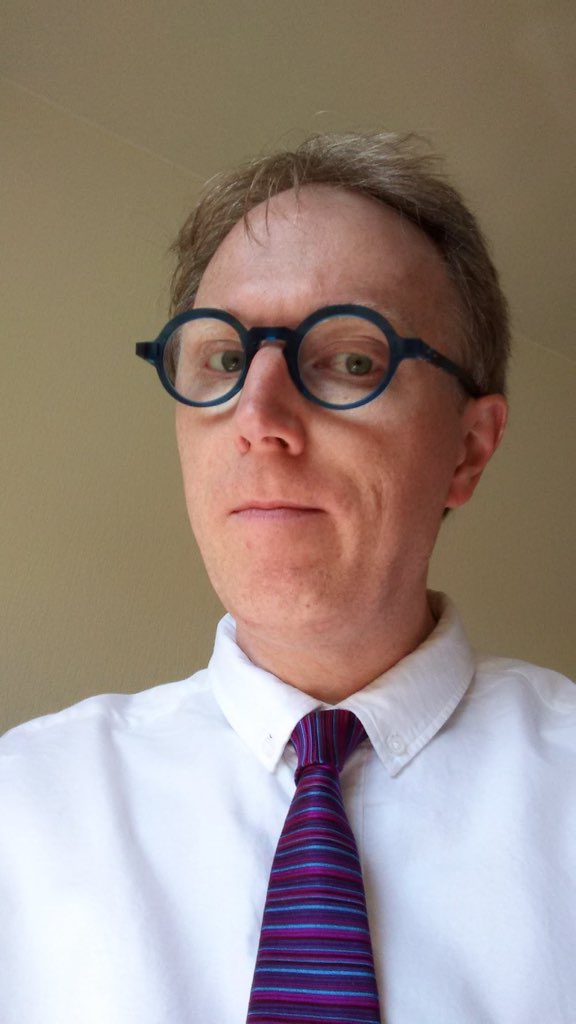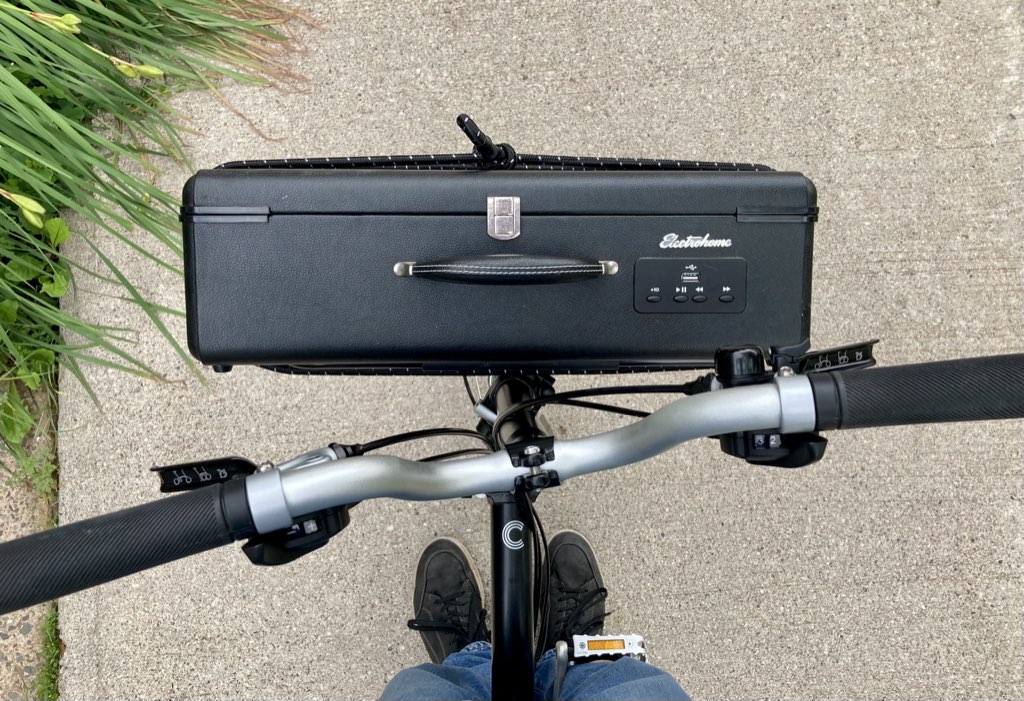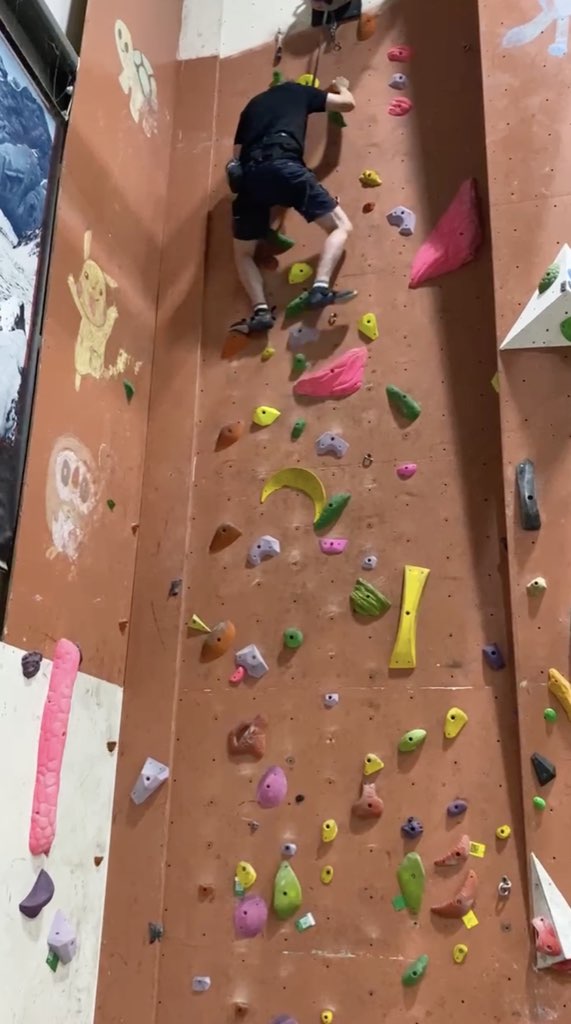This is a selfie I took in Malmö, in 2016, on the day of Olle and Luisa’s 10th anniversary:

In the hours that followed there was a wonderful party, with fascinating people, free-flowing klezmer, and a free-flowing bar; the night ended with 3:00 a.m. falafel. It was the escape from the everyday I needed, with people I love dearly, at exactly the right time.
In this photo, though, there’s a severity, a flatness, that I couldn’t see at the time. I wasn’t happy, and that unhappiness, looking back, was spread across me.
Last summer my pal Dave emailed a kindhearted message: “You look like a million bucks,” he wrote. And it wasn’t news to me: I felt like a million bucks.
On this morning, a morning peppered with tensions surrounding mercurial moods, worry about my daughter, who’s 4000 km away as I write (and who sat on her laptop last night and cracked the screen), anxiety about finally laying Catherine to rest in a few weeks, and a deeper feeling of instability as tectonic plates shift in my personal and professional life, I don’t, at the moment, feel like a million bucks
But.
I look at that photo, and I know that I also no longer feel that severity, that flatness.
I’m getting better at feeling. I’m getting better (little bit by little bit) at feeling okay at being angry, and especially dispensing with the self-imposed limitation that stanches anger (because being angry seldom makes logical sense). In my deepest depths I feel joy, even though that joy gets buffeted constantly, even though the price of that joy (which requires full-hearted feeling of all the things) is woundingly hard sometimes.
In the summer of 2016, I was holding it together; that is all I could muster. Oh how I wish I could reach back and say to that version of myself: “Pete,” I would say, “uncork yourself.” I don’t know if that Pete would have listened. If he had, perhaps feeling all the things would have started earlier. Or maybe I had to walk through that, to muddle my way through, in survival mode; maybe I didn’t have a choice.
I feel alive now in a way that I didn’t know existed then, in a way that I couldn’t imagine possible then. It’s hard. It’s joyful. It’s hard. It’s joyful.
But I wouldn’t have it any other way.
“I really think we need to get a new Sharpie,” I said to Lisa last night at Dollarama. She agreed, with only a little reluctance.
We’re had a garage sale today, something I haven’t done since I was a kid. After the ceaseless schlepping, getting to make price stickers, merchandise the tables (“the culinary arts,” “sporting goods and frames,” “flagons and vases”) was great fun. As was deploying Mega Sharpie this morning.
The Cavendish Beach Music Festival announced that Tyler Childers will be headlining the 2024 event. Olivia and I saw Childers at Paradiso in Amsterdam in 2018, and I waxed enthusiastic:
While the other acts were solid, Childers and his band were crackerjack, and transported the night from a novelty to a happening. Their Kentucky-fueled country rock was well-crafted and energetic; it’s almost impossible to believe that Childers is only 27 years old, as his songs seem written by someone with considerably more life under their belt. We stayed for the entire 75 minute set, and enjoyed every song (it’s not every Kentucky country band that inserts a cover of Kiss Me by Sixpence None The Richer into their act).
Permit me to bask in the ephemeral glow of being ahead of the country music zeitgeist.
From the book 350 Lost Buildings of Canada, an entry on Charlottetown’s Peter Pan:
Peter Pan Drive-In 1958-2020
In the postwar years, the Peter Pan was beloved by locals for its milkshakes, burgers (served in a basket), and lobster burgers. There were few franchised fast-food restaurants at the time; this locally owned place in an A-frame building was a landmark. The restaurant closed in 2013 and was demol-ished, but carpenters from Holland College rescued its sign, featuring Peter Pan and lettering that seemed to have been created by a young child. 711 University Avenue; demolished.
We dipped our toes in the waters of vinyl this spring: I was gifted a collection of LPs, and the loan of a portable turntable, to see if we could muster what it would take to replace Spotify et al with a record collection.
The vinyl was as good as it gets: Lisa and L. curated a collection of Dennis Ellsworth’s deaccessioned collection, which had remarkable crossover with albums I played on the radio thirty years ago.
But the vinyl didn’t take: we’ve been lulled into the comfort of “Alexa, play Rosemary Clooney on Spotify,” and going back to needle-dropping wasn’t meant to be.
With hipster street-red eroding, I realized urgent action was required to re-establish, so to return the turntable across town I fashioned a bungie-cord-based system to strap it to the front of my Brompton. After dropping it, I came to the library to have an espresso, just to cement my credentials.

Not since the big Coles Building stairs rebuild in 2017 has there been a downtown Charlottetown stairs project to match, but the new Grafton Street steps at the Polyclinic, which reopened this week after months of work, surpass in both beauty and utility.
I was the senior member of a small but mighty band that visited Red Rock Climbing Wall in Stratford this morning. It was my first time at, near, or up a climbing wall, and so a chance to live out the aphorism, posted there on the wall, “when was the last time you got to do something for the first time” with a dose of moxie.
We were greeted by personable owner Matt Cormier, a skilled climber, and an even better concierge and teacher. He really is a master of getting one from uninitiated-just-off-the-street into gear (a harness, purposefully-tight climbing shoes), awareness, and up the wall.
I love a new experience, and was curious about what climbing would be like, and that was enough to get me over the fear reflex. It’s a fascinating series of spacial, strength, and body-awareness puzzles to get from the bottom to the top, and, after a slow start, I managed to climb to the top of the first run. I’m proud of myself.

Once I was at the top, there was nowhere to go but down, which is done—and this is the most counter-intuitive part, something that Matt warned us of—by leaning back off the wall and sliding gently back to Earth. Lisa shot a video of me doing just that:
Notice that I was smiling when I got to the ground!
Thank you to Lisa for the invitation to Red Rock, for Matt for being so helpful, and for younger L. and S., the other members of the crew, for their inspiring feats of climbing prowess.
If you’re curious about rock climbing, and want to get a taste, I highly recommend a visit to Red Rock. You need to bring only yourself and your moxie.
I was sad to learn, via Citizen’s Alliance Newsletter, that Hugh Segal had died.
In his remembrance of Segal, TVO’s Steve Paikin recounts Segal’s focus, after joining the Senate, on Universal Basic Income:
From that Senate perch, Segal championed what became the mission of his lifetime: getting a basic-income program put in place so that Canadians could avoid the stigma of being on welfare and use a non-judgmental hand up to get back on their feet. He made the case most eloquently in his 2019 book Bootstraps Need Boots: One Tory’s Lonely Fight to End Poverty in Canada.
Although he had significant policy disagreements with most Liberals, one of Segal’s best relationships in politics was with Kathleen Wynne. When Ontario’s 25th premier implemented a basic-income pilot program in three cities, no one sang her praises more enthusiastically than Segal, who played a significant advisory role in getting the government there.
Segal’s loyal Tory core was shaken to its foundations when Doug Ford came into office in 2018: one of the first things the new premier did was cancel that program in its infancy, rather than waiting until the end of its trial period to judge its effectiveness. Segal didn’t need a reason to dislike Ford’s brand of obnoxious populism, but cancelling the basic-income pilot for reasons that made little sense was a bitter pill for him to swallow.
However, when I asked Segal about the program’s cancellation, he was not mired in despair. “This is the nature of politics,” he allowed. “Two steps forward, one step back. We’ll just keep at it and continue to try to roll the boulder up the mountain.” Again, the happy warrior.
Hugh Segal visited Charlottetown in October 2019 to speak about Universal Basic Income, and he was a convincing warrior in that fight: engaging, sharp, prepared for any rebuttal. I had a brief email exchange with him in the days following, about the portability of such a program. Because social and disability assistance are provincial responsibilities in Canada, people receiving assistance are effectively held hostage to their province of residence, with the high mountain of re-establishing eligibility in a new province presenting an impediment to the inter-provincial mobility guaranteed in the Charter of Rights and Freedoms otherwise. Segal’s reply was optimistic:
The present federal Guaranteed Income Supplement for seniors began in Ontario in 1975 as the provincial Guaranteed Annual Income Supplement (GAINS) for people over 65. Over time, the federal government made it a national programme (GIS). I am confident that once one province launches the Basic Income, the migration to a national programme will be unavoidable, and transpire relatively quickly.
Welfare reform, along with disability support is inevitable. My goal has always been to promote Basic Income as a rational, humane, efficient and constructive way to invest in both a productive economic mainstream that values inclusion, personal dignity and reduces poverty with all its negative pathologies.
I am hopeful that Segal’s mantle will be assumed by others, and that we will realize the dream of a federal, portable Universal Basic Income for all Canadians soon. When this happens, we’ll all owe a great debt to him.
Every year I sponsor the Oscar Wilde Award at Island Fringe, given to the show that “most effectively celebrates non-conformity.” The award-winning show is chosen by a jury, and evidence suggests that the process of jurying the shows is done with considerable thoughtfulness. Island Fringe is one of my favourite things, and watching the Oscar Wilde take on a life of its own continues to be a lovely part of it.
This year’s award went to Riley Jane Carson for her show Transpectrum:
Follow Riley Jayne Carson on a wonderful journey. This neurodivergent trans beauty queen explains how a love for Anne of Green Gables awakened her identity. And after over thirty years of self denial, it took another red headed Ann to help her rediscover her gender identity. Riley Jayne is a Jack (or should I say Jill) of multiple talents. A background in theatre and very basic music allowed her to express her views, humour and attitude in a variety of forms ranging from stand-up comedy to drag.
On the way over to the closing ceremonies I was talking to Olivia about what “non-conformity” means, and used her owning her neurodivergent transness as an example of it; that the award went to “neurodivergent trans beauty queen” was a delightful counterpoint to that.
 I am
I am